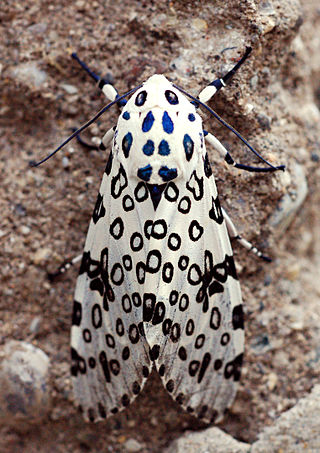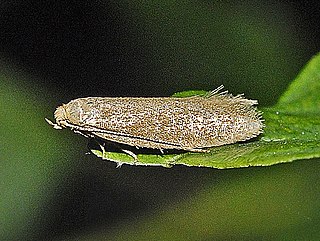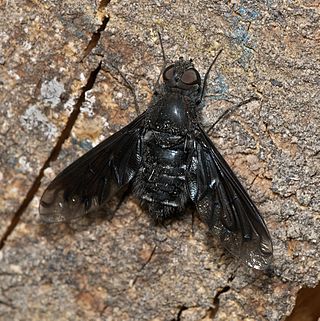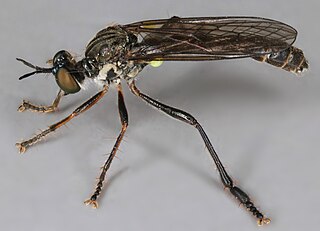
The giant leopard moth is a moth of the family Erebidae. They are distributed through North America from southern Ontario, and southern and eastern United States through New England, Mexico, and south to Colombia. The obsolete name, Ecpantheria scribonia, is still occasionally encountered.

The miller is a moth of the family Noctuidae. It is found throughout Europe apart from the far south-east. The range extends from the South of Spain, Central Italy and Bulgaria to Scotland and Central Scandinavia, crossing the Arctic circle in Finland and Norway. Outside Europe it is only known in North Africa. In the Eastern Palearctic and the Nearctic realm it is replaced by Acronicta vulpina, formerly known as Acronicta leporina subspecies vulpina.

Passerida is, under the Sibley-Ahlquist taxonomy, one of two parvorders contained within the suborder Passeri. While more recent research suggests that its sister parvorder, Corvida, is not a monophyletic grouping, the Passerida as a distinct clade are widely accepted.

Xylomyidae is a family of flies known commonly as the wood soldier flies. They are xylophagous and are associated with dead or dying wood.

Setina irrorella, the dew moth, is a moth of the family Erebidae. The species was first described by Carl Linnaeus in his 1758 10th edition of Systema Naturae. It is found in the Palearctic from Ireland, then through Europe and east to northern and central Asia to the Pacific Ocean. It is missing in the high north and parts of the Mediterranean region. It is found also in the limestone Alps up to 2,000 meters above sea level.

Pseudatemelia subochreella, the straw-coloured tubic, is a species of gelechioid moth.

Danaus eresimus, the soldier or tropical queen, is a North American, Caribbean, and South American butterfly in the family Nymphalidae.

Atherix ibis, the yellow-legged water-snipefly, is a species of ibis flies belonging to the family Athericidae, a small family very similar to Rhagionidae.

Pachygaster atra, the dark-winged black, is a European species of soldier fly.
Oxycera analis, the dark-winged soldier, is a species of soldier fly.

Chorisops tibialis, the dull four-spined legionnaire, is a Palearctic species of soldier fly.

Solva is a fly genus in the family Xylomyidae, the "wood soldier flies".

Anthrax anthrax is a species of fly in the family Bombyliidae. Unlike, for example, Bombylius major, this species does not mimic a bee. The eggs are flicked by the adult female toward the entrance of the nests of mason bees. After hatching, the larvae find their way into the nests to feed on the bee larva. A. can be found in May to August throughout mainland Europe. In the Netherlands A. anthrax is a common visitor of insect hotels. It was first recorded as breeding in Britain in 2019.

Blera scitula, the western wood fly, is an uncommon species of syrphid fly first officially described by Williston in 1882. Hoverflies get their names from the ability to remain nearly motionless while in flight. The adults are also known as flower flies, for they are commonly found around and on the flowers from which they get both energy-giving nectar and protein-rich pollen. The larvae of Blera are of the rat-tailed type, feeding on exuding sap or in the rot holes of trees.

Pompelon is a monotypic moth genus in the family Zygaenidae erected by Francis Walker in 1854. Its only species, Pompelon marginata, was first described by Félix Édouard Guérin-Méneville in 1843. It is a day-flying moth found throughout Southeast Asia, with sightings in the Philippines, Myanmar, Thailand, Sulawesi, Borneo, Peninsular Malaysia, Singapore, and Sumatra.

Dioctria hyalipennis is a Holarctic species of robber fly in the family Asilidae.














